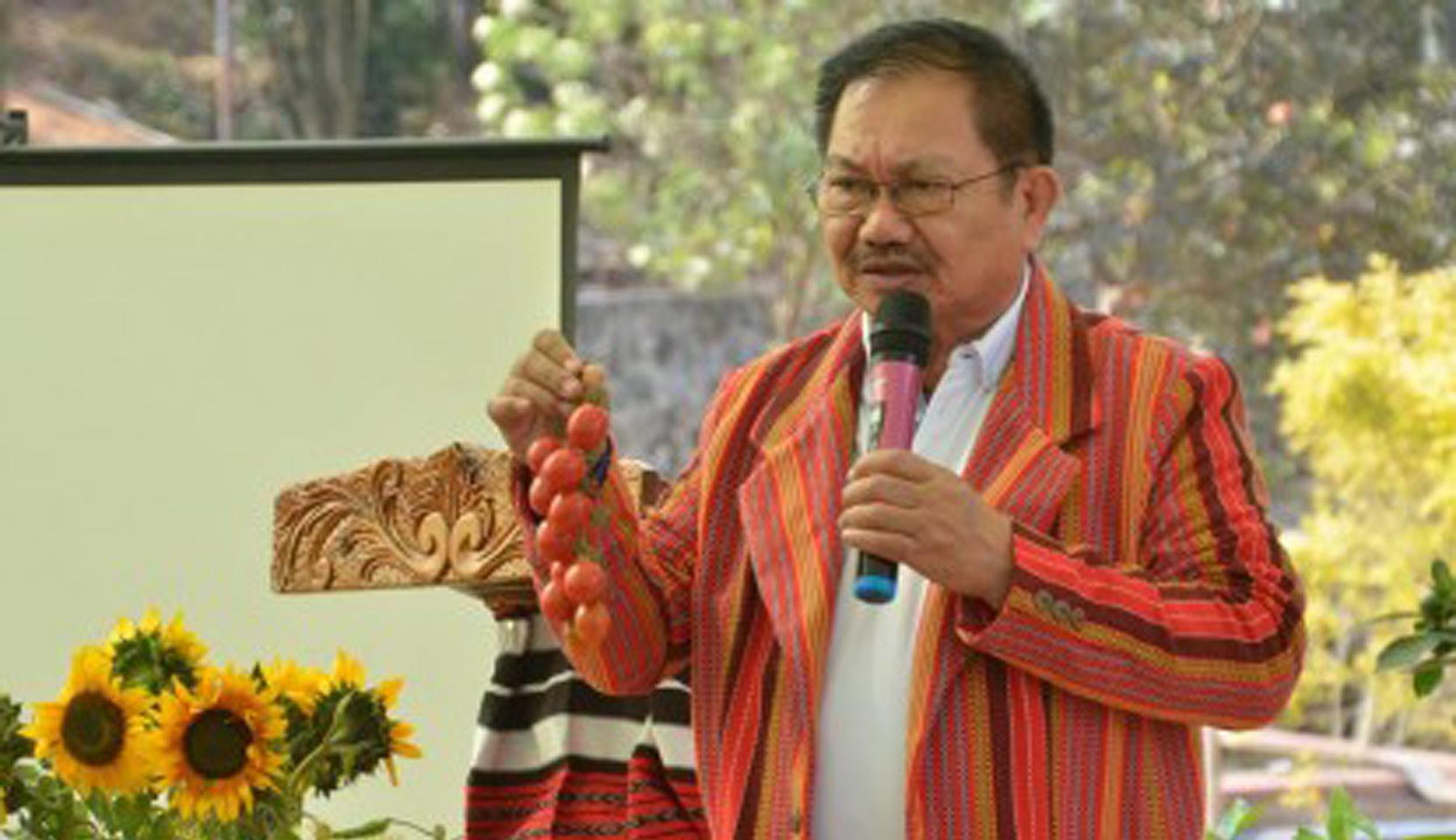
3 minute read
Piñol urges Filipinos to grow own food, not rely on imports
and thanked the PNOC Group Management and Directors for the significant contribution to our fight against COVID-19.” Mindanao News
“The energy family is united not only in ensuring unhampered energy services during this period, but also in seeking all possible ways to support the government, our front liners, and our people,” he said. PNOC, the premier energy company in charge of maintaining an adequate and stable supply of oil and providing vital energy infrastructure for the country, is a government-owned and -controlled corporation (GOCC) with two subsidiaries – PNOC Exploration Corporation (PNOC EC) and PNOC Renewables Corporation (PNOC RC)].
Advertisement

Piñol urges Filipinos to grow own food, not rely on imports The PNOC Board of Directors also pledged to donate a portion of their per diems to the procurement of muchneeded protective gear and supplies for healthcare front-liners. The other members of the PNOC Board of Directors are former Energy Regulatory Board Chairman Rex V. Tantiongco, Ret. Admiral Adolf Borje (PN), Ret. MGen. Romeo V. Poquiz (PAF), Ret. Maj. Hermann Roy M. Atienza (PAF), Ramon Victor B. Mitra, Jr., Jonas Guy S. de Leon;, and Michael Ted R. PNOC EC, which is 99%-owned by PNOC, is the exploration arm that holds 10 percent working interest in Service Contract 38, also known as the Malampaya Deep Water Gas-toPower Project). PNOC RC, on the other hand, is the subsidiary charged with the development of solar, hydro, waste-toenergy and other renewable energy projects. Cusi sits as ex-officio Chairman of the Boards of PNOC and its subsidiaries. (Serafin Ledesma, Jr./PNA) By Prexx Marnie Kate Trozo
DAVAO CITY – With the 2019 coronavirus disease (Covid-19) crisis threatening the supply chain all over the world, Mindanao Development Authority (MinDA) Secretary Emmanuel Piñol urged the Filipinos to grow their own food and not merely depend on imports.
On a F a c e b o o k post on Friday, Piñol, said noted that as a rich agricultural country, the P h i l i p p i n e s must learn from the p a n d e m i c and purge itself from the mindset that the country c o u l d c o n t i n u e sourcing food supplies--especially rice- -from other nations. “As things stand now, with the threat of skyrocketing prices of rice in the world market, we would end up paying more than if we had poured investments on our local food production program,” he said. He said that there is a need to review certain policies, especially on agriculture and fisheries investments. “Giving agriculture and fisheries only PHP50 billion while a dole-out program gets PHP140 billion every year is a policy that needs to be reviewed,” Piñol said. He cited the case in the United States, which he said is now learning “a painful lesson that over-dependence on the global supply chain for critical requirements like medicines could be very “dangerous.” He also suggested that the Build, Build, Build Program must also shift its focus on rural and agricultural infrastructure rather than “excavating and repaving still functional highways.” To boost rice sufficiency, Piñol said more irrigation facilities, maximum utilization of research and development programs such as the hybridization program and support for fertilization and credit must be given the needed support. “I know that I have been publicly ridiculed because of this advocacy for rice sufficiency but I still hang on to the conviction that, with the needed support, the Philippines could be food sufficient,” the MinDA chief said. “In times of crisis, the survival of a nation will depend on how well it could feed its people,” he added. (PNA) Mindanao Development Authority Secretary Emmanuel Piñol. (PNA) Mindanao News










